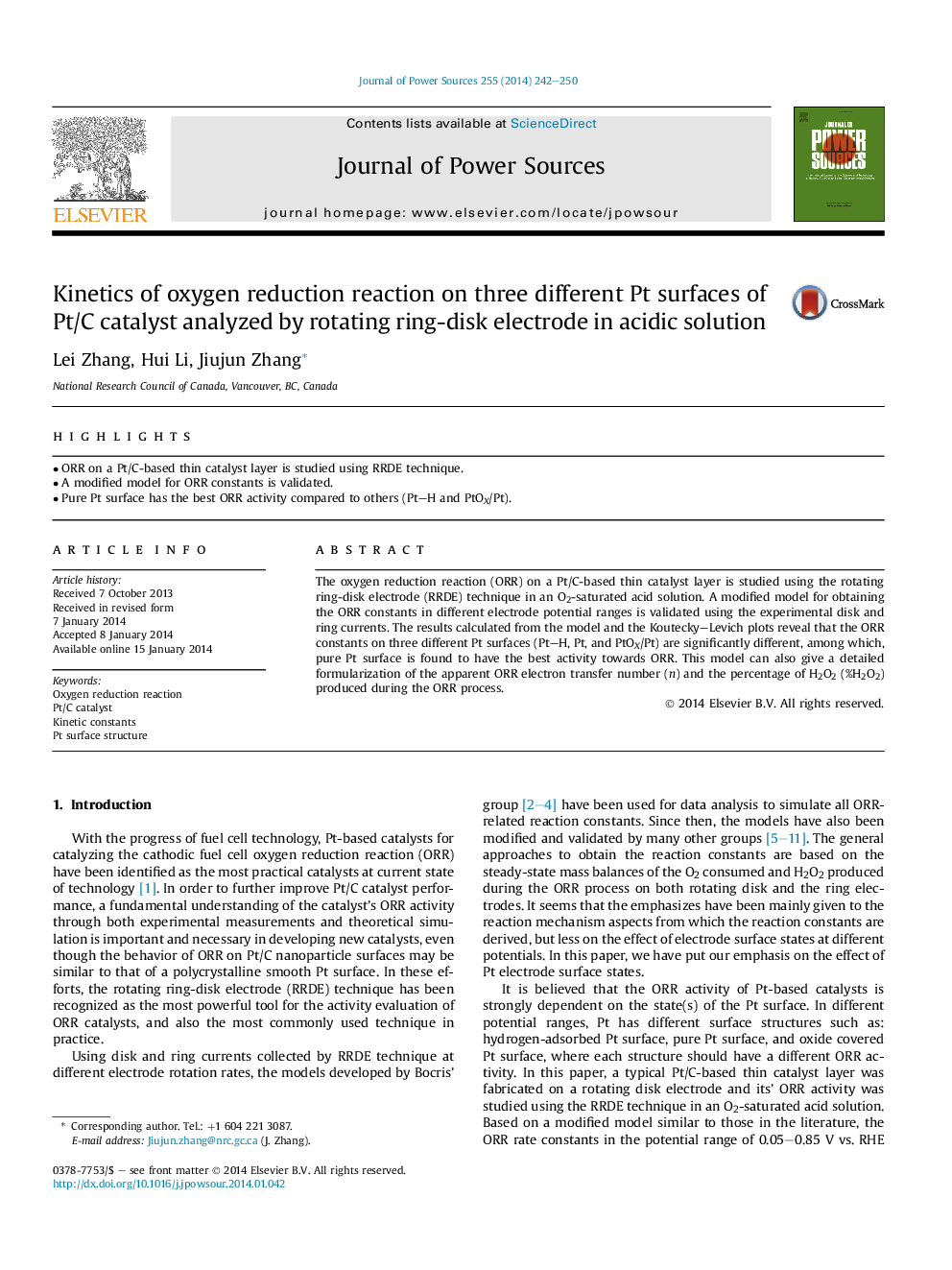| Article ID | Journal | Published Year | Pages | File Type |
|---|---|---|---|---|
| 1284188 | Journal of Power Sources | 2014 | 9 Pages |
•ORR on a Pt/C-based thin catalyst layer is studied using RRDE technique.•A modified model for ORR constants is validated.•Pure Pt surface has the best ORR activity compared to others (Pt–H and PtOX/Pt).
The oxygen reduction reaction (ORR) on a Pt/C-based thin catalyst layer is studied using the rotating ring-disk electrode (RRDE) technique in an O2-saturated acid solution. A modified model for obtaining the ORR constants in different electrode potential ranges is validated using the experimental disk and ring currents. The results calculated from the model and the Koutecky–Levich plots reveal that the ORR constants on three different Pt surfaces (Pt–H, Pt, and PtOX/Pt) are significantly different, among which, pure Pt surface is found to have the best activity towards ORR. This model can also give a detailed formularization of the apparent ORR electron transfer number (n) and the percentage of H2O2 (%H2O2) produced during the ORR process.
